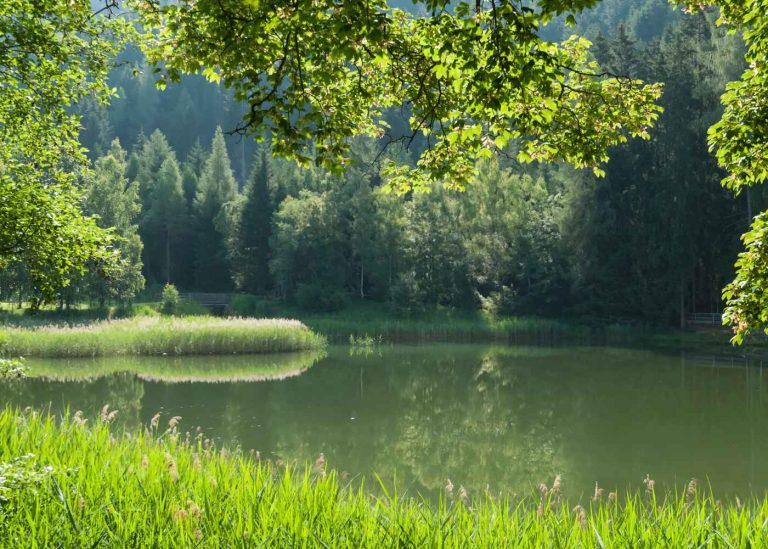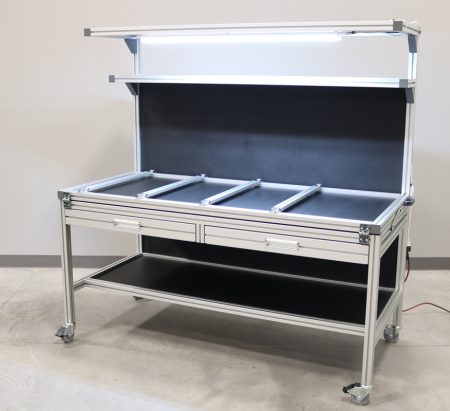Pond muck buildup represents one of the most common yet overlooked problems affecting water quality, aquatic life, and overall pond health. This organic layer of decomposed material accumulates on pond bottoms over time, creating environments that support harmful bacteria while reducing water clarity and ecosystem balance that healthy ponds require.
Many pond owners ignore muck accumulation until problems become severe, not realizing that early intervention prevents expensive restoration costs while maintaining the natural beauty and functionality that makes ponds valuable landscape features.
Understanding why muck management matters helps pond owners recognize the importance of proactive care that preserves water quality while protecting their investment in pond infrastructure and aquatic ecosystems.
Preventing Water Quality Deterioration
Organic muck releases nutrients that fuel algae growth while creating imbalanced water chemistry that affects oxygen levels, pH, and overall water quality that fish and aquatic plants need for healthy survival.
Harmful bacteria thrive in muck layers while producing toxins and compounds that create foul odors, discolored water, and unhealthy conditions that make ponds unpleasant and potentially dangerous for recreational use.
Oxygen depletion occurs when decomposing muck consumes dissolved oxygen while creating anaerobic conditions that stress fish populations and disrupt natural biological processes that maintain pond health.
Water clarity decreases as muck particles become suspended while creating cloudy, murky conditions that reduce light penetration needed for beneficial aquatic plant growth and photosynthesis.
Protecting Fish and Aquatic Life
Fish habitat degradation results from muck accumulation that covers spawning areas while creating unsuitable bottom conditions that affect reproduction and survival of desirable fish populations.
Stress factors from poor water quality caused by muck buildup weaken fish immune systems while making them more susceptible to diseases and parasites that can devastate pond fish communities.
Food chain disruption occurs when muck affects beneficial insects and microorganisms while reducing natural food sources that support healthy fish populations and aquatic ecosystem balance.
Toxic gas production from decomposing muck creates dangerous conditions while potentially killing fish during winter months when ice cover prevents gas exchange with the atmosphere.
Maintaining Property Value and Aesthetics
Visual appeal deteriorates when muck creates unsightly conditions while producing odors and water discoloration that reduce property value and limit recreational enjoyment of pond features.
Recreational limitations develop as muck accumulation makes swimming, boating, and fishing unpleasant while creating safety concerns for family members and guests who use pond areas.
Landscaping impact occurs when muck problems affect surrounding plants while creating conditions that detract from overall property appearance and outdoor living spaces.
Investment protection through proper muck management preserves pond infrastructure while maintaining the landscape value that contributes to overall property worth and appeal.
Understanding Professional Solutions
Muck reducers and pond cleaning represent effective solutions for addressing accumulated organic matter while restoring pond health through biological and mechanical approaches. Professional muck reduction products use beneficial bacteria and enzymes that break down organic sediments naturally, while mechanical pond cleaning removes excessive buildup through dredging and vacuum systems that restore proper pond depth and function. A quality pond muck reducer can significantly improve water clarity and reduce odors by targeting the organic matter that creates problematic conditions.
Natural biological treatments work gradually to reduce muck while supporting beneficial bacteria that maintain water quality and prevent future accumulation through ongoing biological activity.
Mechanical removal provides immediate results while addressing severe muck problems that require physical extraction to restore pond depth and improve water circulation throughout the system.
Generating Interest Through Education
Lead generation for pond service providers often focuses on educating property owners about muck problems and solutions while demonstrating expertise that builds trust and confidence in professional services. Educational content about pond health, muck identification, and treatment options helps pond owners understand when to seek professional help while positioning service providers as knowledgeable resources who can solve complex pond problems effectively.
Problem identification helps pond owners recognize muck issues while understanding the progression of problems that require professional intervention for effective resolution.
Solution awareness educates potential customers about available treatments while demonstrating the value of professional services that provide lasting results.
Preventing Expensive Restoration Costs
Early intervention costs significantly less than major pond restoration while preventing damage that requires expensive dredging, replanting, and ecosystem reconstruction that advanced muck problems often necessitate.
System failure prevention through regular muck management avoids complete pond ecosystem collapse while maintaining biological balance that supports long-term pond health and functionality.
Infrastructure protection prevents muck from damaging pumps, filters, and aeration systems while extending equipment life and reducing maintenance costs that affect pond operation expenses.
Emergency avoidance through proactive muck control eliminates crisis situations while preventing fish kills and water quality disasters that create expensive cleanup and restoration requirements.
Supporting Long-Term Pond Health
Ecosystem balance maintenance through proper muck management supports beneficial bacteria while creating conditions that naturally resist algae blooms and water quality problems that plague neglected ponds.
Sustainable practices including regular muck monitoring and treatment create maintenance routines while preventing accumulation that leads to major problems requiring extensive intervention and restoration.
Preventive care schedules help pond owners maintain healthy conditions while avoiding the reactive approach that leads to expensive emergency treatments and system failures.
Natural processes support through muck management allows ponds to function as intended while maintaining the biological balance that creates beautiful, healthy aquatic environments.
Protecting Investment Value
Pond maintenance including muck control protects significant landscape investments while ensuring ponds continue providing the aesthetic and recreational value that makes them worthwhile property features.
Professional services provide expertise and equipment while delivering results that maintain pond health and prevent costly problems that DIY approaches often cannot address effectively.
Taking Action Now
Addressing pond muck buildup prevents minor problems from becoming major expenses while maintaining the natural beauty and functionality that makes ponds valuable landscape investments.
Implement regular muck management practices while working with qualified professionals who understand pond ecosystems and can provide effective solutions that protect your investment for years to come.










